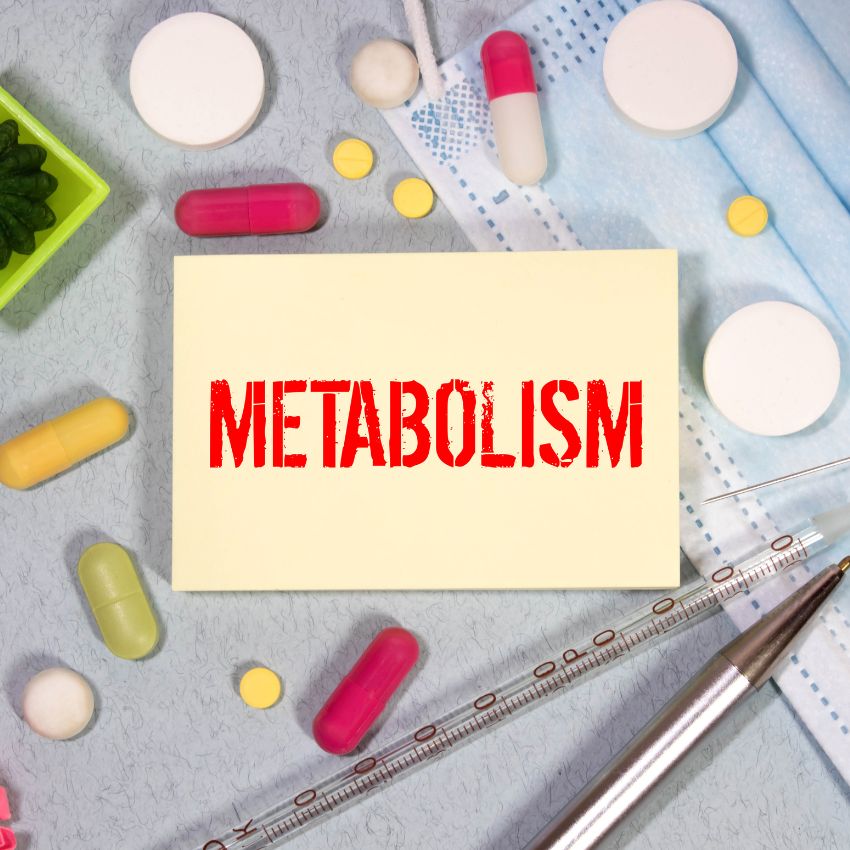
Foam vs Cream Cleansers: Which Is Better?
Foam vs Cream Cleansers: Learn which cleanser is better for your skin type and achieve radiant, healthy skin.
Home » Metabolic Slowdown After 40: Myth vs Reality

Let’s take a guided journey through one of the most discussed health topics for adults: the metabolic slowdown that occurs after 40. Many people wonder if they’re destined to gain weight or feel sluggish as the years pass, but the reality is more nuanced than the myths would suggest. At Enhanced Aesthetics & Wellness, guided by our commitment to excellence, we have over 20 years of experience supporting the Pahrump community with science-based advice and advanced wellness solutions. Together, we’ll break down what metabolic slowdown means, why it happens, and what you can do to maintain your best self at every age.
Metabolic slowdown is a gradual decrease in the rate at which your body uses energy, or burns calories, for basic functions such as breathing, circulation, and cell repair. Think of metabolism as your internal engine—it keeps all your bodily processes running. Over time, just as a car engine can become less efficient, your metabolism may slow down, affecting how quickly you burn calories and process nutrients.
The body is always adapting. As we age, several factors can cause our metabolism to shift, including changes in muscle mass, hormone levels, and lifestyle habits. After the age of 40, the body naturally loses muscle tissue more quickly, and this is critical because muscle burns more calories than fat. This means that even if your weight stays the same, your body might use fewer calories than it did in your 20s or 30s.
The speed of your metabolism influences how easily you gain or lose weight, how much energy you feel, and even how your body responds to food and exercise. A slower metabolism can make it easier to gain weight, especially around the abdomen, and can lead to feelings of fatigue or sluggishness. However, it’s important to remember that metabolism is only one piece of the puzzle when it comes to your overall wellness.
Hormonal changes are a major factor in metabolic slowdown. For women, menopause brings drops in estrogen, while men experience gradual declines in testosterone. Both can affect muscle mass and fat storage. These shifts may also influence sleep, appetite, and mood, all of which play roles in your metabolic health. Enhanced Aesthetics & Wellness offers bioidentical hormone replacement therapy, a service that can help address some of these changes as part of a holistic approach to aging well.
Your daily habits play a significant role in how your metabolism functions. Eating a diet low in protein or skipping meals can reduce muscle mass and slow your metabolic rate. A sedentary lifestyle, where movement is limited, can also contribute to muscle loss over time. On the other hand, regular physical activity, especially strength training, can help preserve muscle and keep your metabolism more active.
Certain health conditions, such as hypothyroidism, and medications, like some antidepressants, can influence how quickly your body uses energy. If you notice unexplained weight gain or fatigue, it’s important to consult a healthcare professional. At Enhanced Aesthetics & Wellness, our team is experienced in helping clients identify and address these underlying issues through tailored wellness programs.
Some signs of metabolic slowdown are visible, such as weight gain, especially around the midsection, or difficulty losing weight despite consistent efforts. Other changes might be less obvious, like increased sensitivity to cold temperatures or dry skin. Paying attention to these shifts can help you act early and seek support if needed.
It’s not just your body that feels the impact of a slowing metabolism—your mind can be affected, too. Low energy and changes in body composition can influence self-esteem and mood. These emotional responses are normal, but they don’t have to be permanent. A supportive environment, like the one you’ll find at Enhanced Aesthetics & Wellness, can make a significant difference in how you navigate these changes.
You might notice several clues that your metabolism is shifting. These can include unexpected weight gain, increased fatigue, muscle weakness, feeling cold more often, or changes in hair and skin texture. While many of these changes are a normal part of aging, they can also signal other health concerns.
If you experience persistent symptoms like ongoing fatigue, rapid weight changes, or mood disturbances, it’s wise to reach out to a medical professional. Getting a comprehensive assessment can help pinpoint the cause and provide a plan for moving forward. Our family nurse practitioner, Sherry Cipollini, FNP-BC, is available at our Pahrump clinic to help you assess and address your concerns with compassion and expertise.
Prioritizing whole, nutrient-rich foods and adequate protein is essential. Protein helps preserve muscle mass, which in turn supports a more active metabolism. Staying hydrated and including fiber from fruits and vegetables can aid digestion and energy use. For those interested in specific supplements or metabolism injections, our comprehensive medical aesthetic services may include personalized nutrition recommendations and wellness therapies.
Regular physical activity remains one of your best tools for supporting metabolic health. Activities that build muscle, like resistance training or bodyweight exercises, are especially beneficial. Even daily walks or gentle stretching can make a meaningful difference over time.
Let’s focus on practical steps you can take to keep your metabolism working for you. First, aim to include a variety of activities in your week, such as strength training, cardio, and flexibility exercises. Next, choose meals that combine lean proteins, healthy fats, and complex carbohydrates. Staying consistent with sleep and stress management also plays a vital role, as both poor rest and chronic stress can negatively affect metabolism.
If you’re interested in exploring targeted therapies, Enhanced Aesthetics & Wellness provides options like bioidentical hormone replacement therapy and metabolism-boosting injections that can complement your lifestyle efforts. Reviews from our clients reflect the value of a holistic approach to wellness and the expertise our team brings to each visit, as seen on our Reviews page.
If you’re noticing signs of metabolic slowdown or want to be proactive about your health, the first step is to consult with a trusted provider. Our Contact Us page makes it simple to connect with our team and schedule an initial consultation.
Metabolic slowdown after 40 is a natural process, but it’s not an unchangeable fate. By understanding the factors that influence metabolism and implementing healthy strategies, you can sustain your vitality and confidence at any age. At Enhanced Aesthetics & Wellness, our 20+ years in aesthetics and wellness equip us to guide you with empathy and expertise on your journey towards optimal health.
Metabolic slowdown refers to the gradual decrease in energy use by your body as you age. Caring about your metabolism is important because it affects your weight, energy levels, and overall wellness. Understanding metabolic changes can empower you to make informed choices that support a healthy, active lifestyle.
Metabolism typically begins to slow down in your 30s and 40s, though the rate and impact can vary from person to person. Lifestyle, genetics, and hormonal changes all play roles in determining when and how you notice these shifts. Early awareness and proactive health habits make a significant difference in how you feel as the years progress.
Metabolic slowdown isn’t just a matter of “getting older”—it’s a complex, highly individual process influenced by genetics, lifestyle, and even stress levels. Let’s remember: your metabolism is as unique as your fingerprint, and that means your path to renewed energy and healthy weight management should be just as individualized. At Enhanced Aesthetics & Wellness, we believe you deserve more than cookie-cutter advice. With over two decades of experience, our team takes the time to carefully assess your personal history, daily habits, and goals before crafting practical steps you can really use.
Q: What are the first signs that my metabolism is slowing down?
A: The earliest signs may include gradual weight gain, especially around your midsection, reduced energy, and difficulty maintaining muscle. If you notice these changes despite consistent habits, it may be time to talk with a healthcare provider.
Q: Can metabolism-boosting injections really help?
A: Metabolism injections, when administered under medical supervision, can support your body’s natural energy use. They are most effective when combined with healthy lifestyle changes and should be discussed with a qualified provider like those at Enhanced Aesthetics & Wellness.
Q: Are there natural ways to maintain a healthy metabolism after 40?
A: Yes, focusing on a protein-rich diet, regular strength training, adequate sleep, and stress management can all help keep your metabolism active as you age. Personalized advice from wellness experts can further enhance your results.

Foam vs Cream Cleansers: Learn which cleanser is better for your skin type and achieve radiant, healthy skin.

Understanding the EZ Gel Plasma Filler: What It Is and How It Works As a Nurse Practitioner with years of experience in the field of